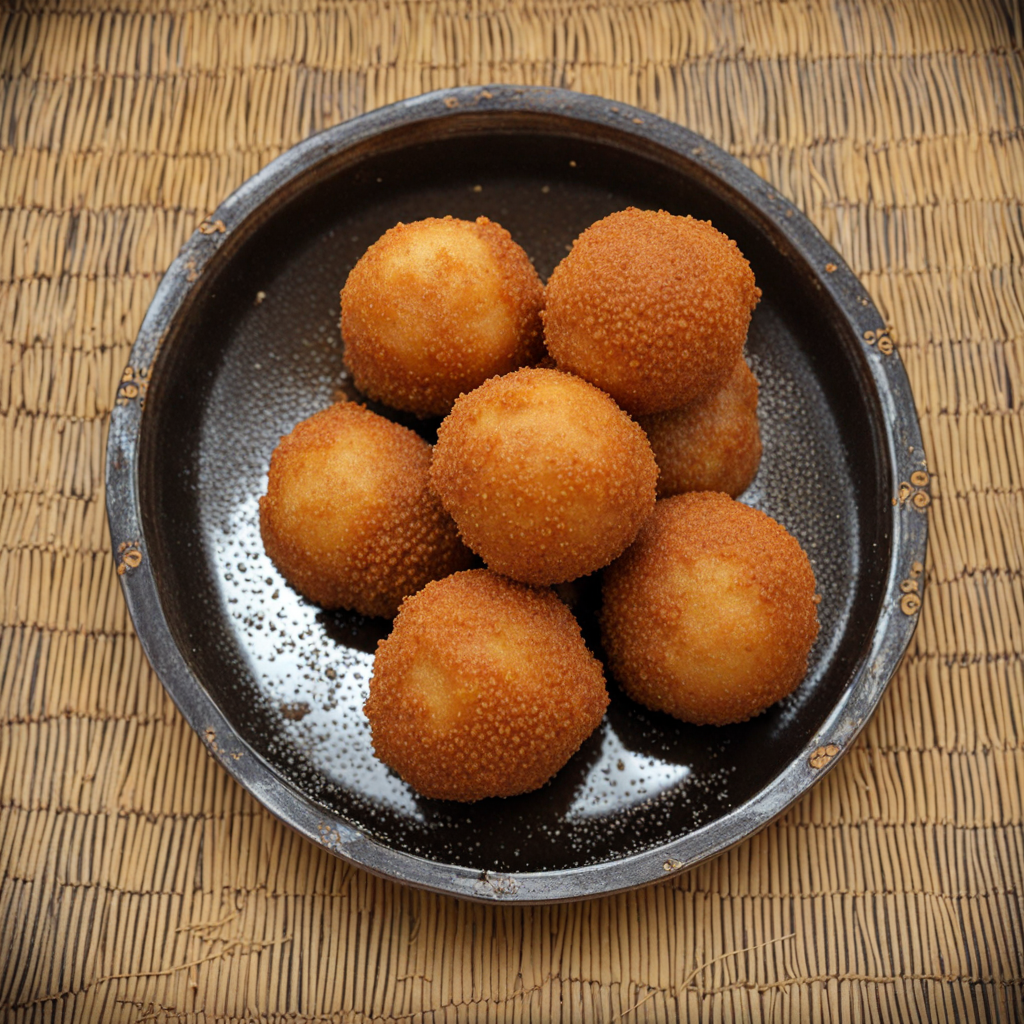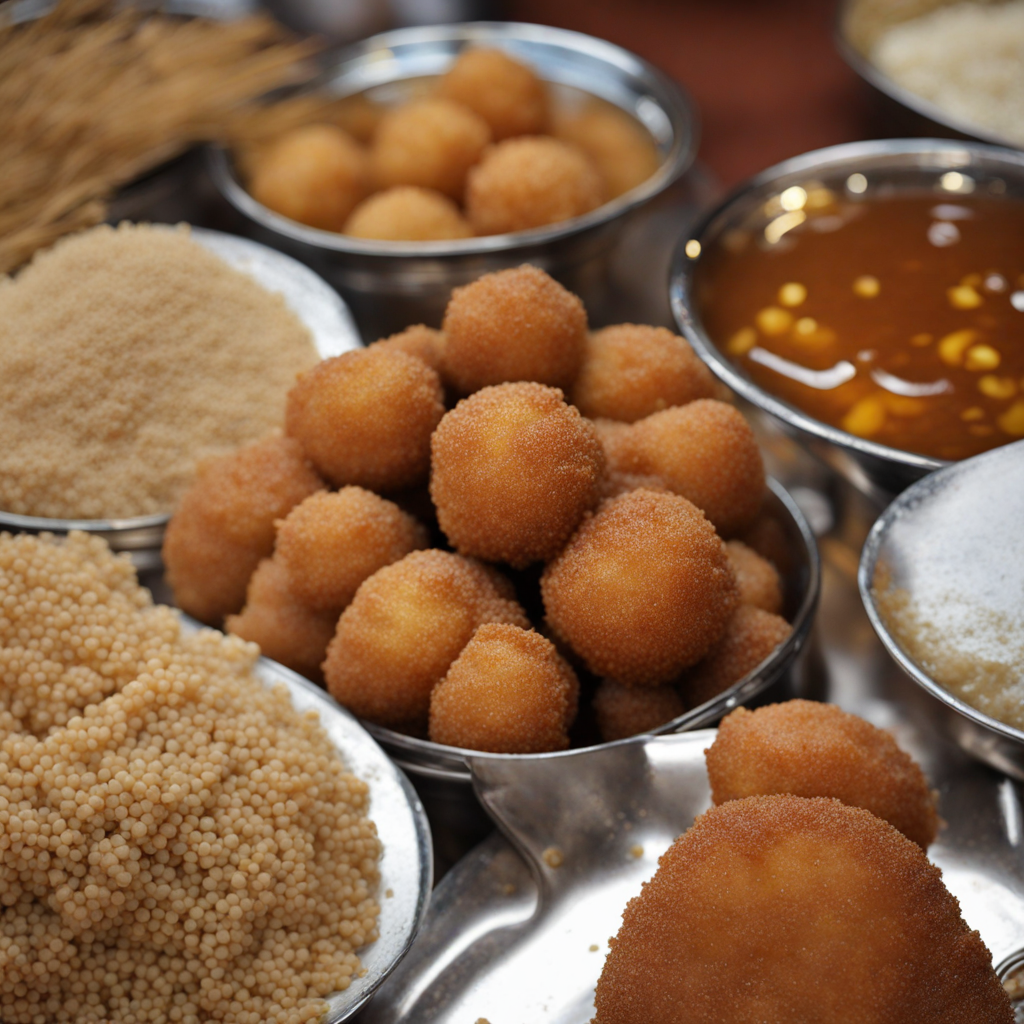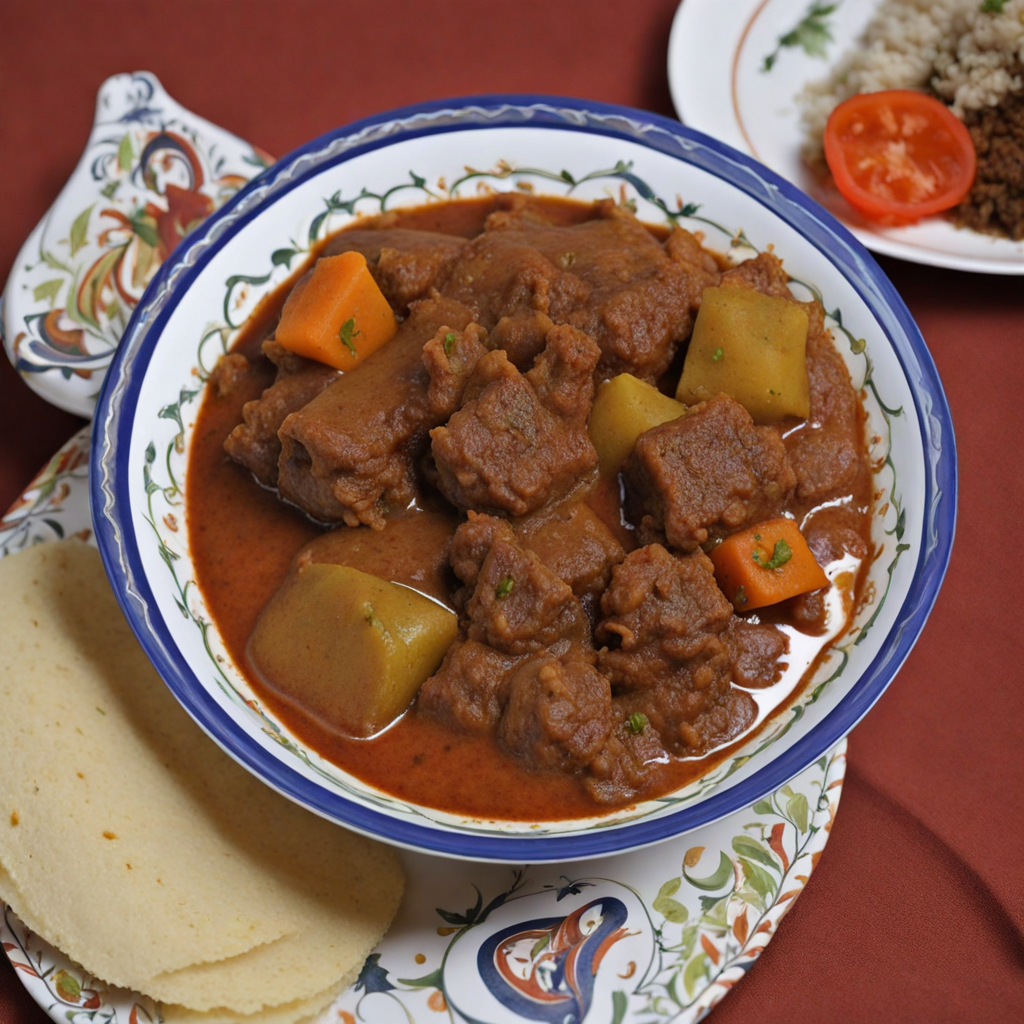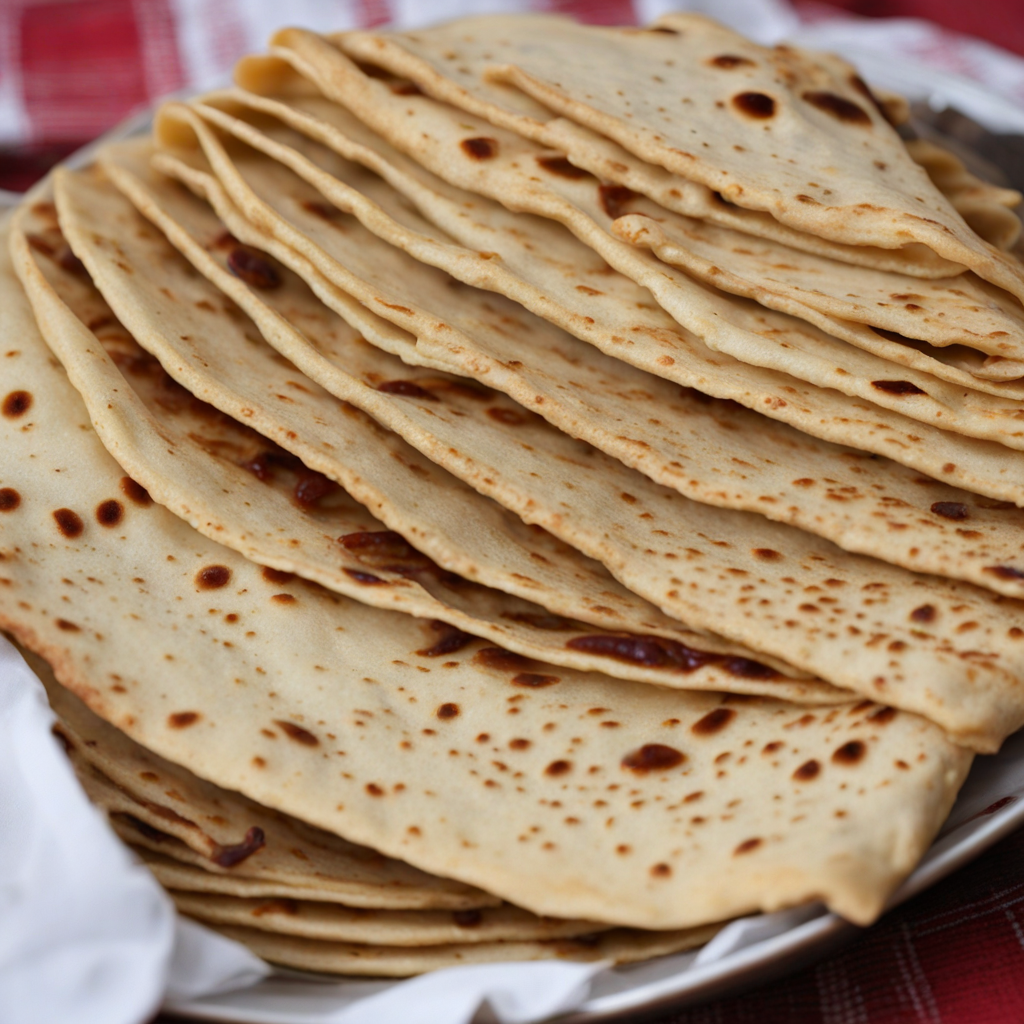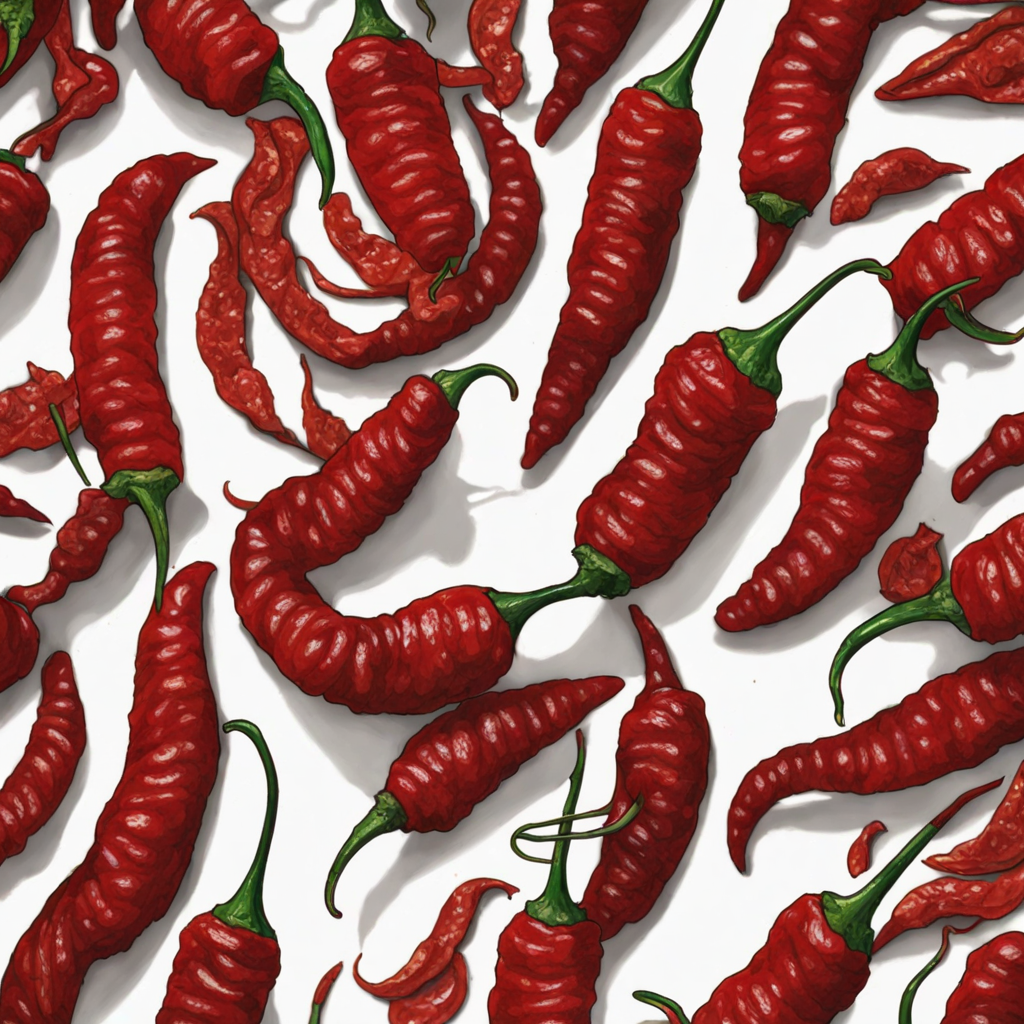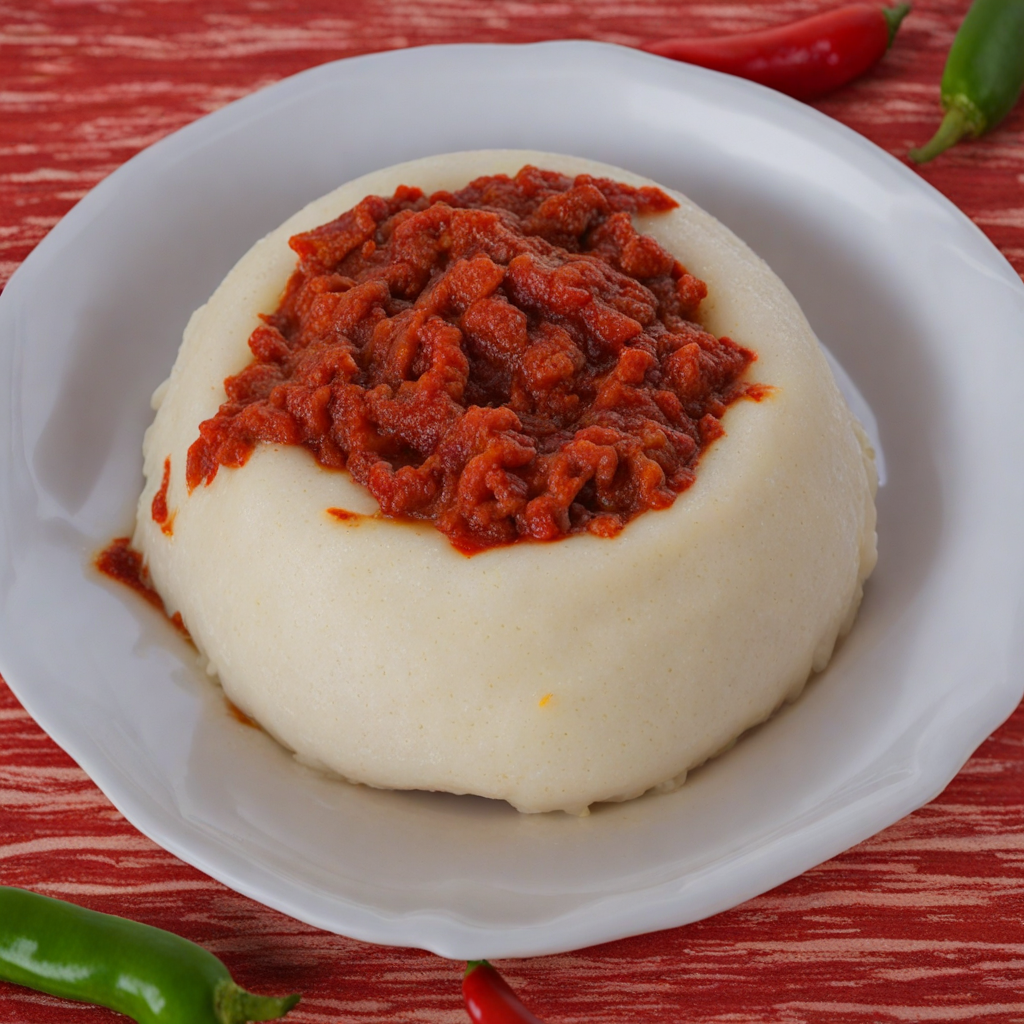Luqmat al-Qadi
Luqmat al-Qadi, a delightful treat hailing from Sudan, is a mouthwatering dessert that has captured the hearts of many. These small, golden-brown balls are made from a simple mixture of flour, yeast, and water, which is then flavored with a hint of cardamom, giving them a unique twist. Once deep-fried to perfection, they transform into light, airy morsels that are crispy on the outside while remaining soft and fluffy on the inside. The textural contrast is part of what makes them so irresistible, inviting you to take just one more bite. To elevate their flavor, Luqmat al-Qadi is traditionally soaked in a warm, sweet syrup made from sugar and flavored with rose water or orange blossom. This syrup seeps into the fried dough balls, adding a luscious sweetness that complements the subtle spice of cardamom. The result is a decadent dessert that offers a symphony of flavors, from the delicate floral notes to the rich sweetness, making each bite an experience to savor. Often enjoyed during special occasions or gatherings, they are a symbol of hospitality and celebration in Sudanese culture. Served warm, Luqmat al-Qadi is often accompanied by a cup of strong Sudanese coffee or tea, creating a perfect pairing that enhances the overall indulgence. Their delightful sweetness and comforting texture make them an ideal treat for those looking to explore new culinary horizons. Whether you encounter them at a local market, a family gathering, or a cozy café, these delightful dough balls promise to introduce your palate to a new, enchanting world of flavors that will linger in your memory long after the last bite.
How It Became This Dish
The Sweet Journey of لقمة القاضي (Luqmat al-Qadi) in Sudan #### Origins: A Taste of Tradition Luqmat al-Qadi, often referred to as "Judges' Bites," is a beloved Sudanese dessert that embodies the rich culinary heritage of the region. The name itself, which translates to "the judge's morsel," conjures images of elegance and refinement, hinting at a storied past. This delightful treat, characterized by its small, round shape and crispy exterior, is traditionally made from a simple mixture of flour, yeast, sugar, and water, deep-fried to golden perfection and often served with a sweet syrup or honey. The origins of Luqmat al-Qadi trace back to the Arab world, where similar dough-based sweets have been enjoyed across various cultures. It is believed that the dish was introduced to Sudan through trade routes and cultural exchanges that connected North Africa and the Arabian Peninsula. As a fusion of influences, Luqmat al-Qadi reflects Sudan's unique position as a crossroads of civilizations, incorporating local ingredients and culinary practices that have evolved over centuries. #### Cultural Significance: A Symbol of Community and Celebration In Sudanese culture, food is more than sustenance; it plays a vital role in social gatherings, celebrations, and communal identity. Luqmat al-Qadi holds a special place in various festivities, including weddings, religious holidays, and family gatherings. Its preparation often brings families together, creating an atmosphere of joy and togetherness. The act of making Luqmat al-Qadi can be a communal affair, where generations come together to share recipes, techniques, and stories, passing down culinary traditions that are integral to Sudanese identity. During Ramadan, the Islamic holy month of fasting, Luqmat al-Qadi becomes a cherished treat to break the fast. Its sweetness and satisfying texture provide a perfect complement to the traditional Iftar meal, allowing families to gather and celebrate the end of the day with joy and gratitude. The cultural significance of Luqmat al-Qadi transcends mere taste; it is infused with memories, rituals, and a sense of belonging. #### Development Over Time: A Culinary Evolution As Sudan has evolved politically, socially, and economically over the years, so too has Luqmat al-Qadi. Initially, this dessert was primarily handmade and served during special occasions. However, with the advent of modernity and globalization, its preparation and consumption have undergone notable changes. In urban areas, the popularity of Luqmat al-Qadi has led to the establishment of specialty shops and street vendors. These outlets have adapted traditional recipes to cater to contemporary tastes and preferences, often experimenting with various fillings and toppings. While the classic version remains a favorite, innovative flavors such as chocolate, pistachio, and coconut have emerged, appealing to younger generations and tourists alike. The rise of social media has also played a significant role in the evolution of Luqmat al-Qadi. As Sudanese cuisine gains recognition beyond its borders, food bloggers and influencers showcase this delicacy, introducing it to a broader audience. The vibrant photographs and enticing descriptions shared online have sparked interest in Sudanese culinary traditions, further solidifying Luqmat al-Qadi's status as a symbol of Sudanese culture. #### A Culinary Tapestry: Ingredients and Preparation The essence of Luqmat al-Qadi lies in its simplicity and the quality of its ingredients. The basic dough is made from flour, yeast, sugar, and water, which is allowed to rise before being shaped into small balls. The key to achieving the perfect texture is in the frying; they must be cooked at the right temperature to achieve a crispy outer layer while remaining light and fluffy inside. Traditionally, Luqmat al-Qadi is served hot and drizzled with a sweet syrup, often flavored with rose water or orange blossom to add an aromatic touch. In some regions, a dusting of powdered sugar or coconut flakes enhances its presentation and flavor. The versatility of Luqmat al-Qadi allows it to be enjoyed in various forms, making it a canvas for culinary creativity. #### Global Recognition: A Culinary Ambassador In recent years, Luqmat al-Qadi has garnered attention outside Sudan, becoming a culinary ambassador for Sudanese cuisine. As the world becomes increasingly interconnected, food has emerged as a powerful means of cultural exchange. Sudanese diaspora communities have played a significant role in introducing Luqmat al-Qadi to international audiences, sharing their heritage through food festivals, pop-up events, and cooking classes. As Sudanese cuisine gains prominence on global culinary stages, Luqmat al-Qadi serves as a symbol of resilience and cultural pride. It embodies the flavors and stories of a nation that has navigated challenges while preserving its rich traditions. The dessert's rise in popularity reflects a broader appreciation for the diversity of global cuisines and the importance of food in fostering understanding and connection between cultures. #### Conclusion: A Sweet Reflection of Identity Luqmat al-Qadi is more than just a dessert; it is a sweet reflection of Sudanese identity and heritage. Rooted in tradition yet evolving with the times, this delicacy encapsulates the spirit of community, celebration, and resilience. As it continues to delight taste buds both at home and abroad, Luqmat al-Qadi stands as a testament to the enduring power of food to tell stories, bridge cultures, and create lasting memories. In a world where culinary traditions are often at risk of fading, Luqmat al-Qadi thrives, reminding us of the importance of preserving our cultural heritage while embracing innovation. Each bite of this delightful treat carries with it the essence of Sudan—its history, its flavors, and its people—inviting all to partake in the sweetness of shared experiences and communal joy.
You may like
Discover local flavors from Sudan


